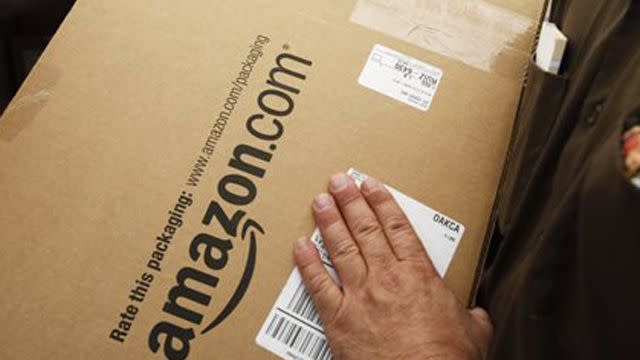Come On, Come On, Tax Me Baby
Why Rob Walker welcomes an Internet sales tax -- and why you should, too

by Rob Walker
It’s looking more and more like we may be about to confront the end of tax-free online shopping: Legislation requiring Web retailers to collect sales taxes outside the states where they are based is gaining momentum.
I’m no masochist; I don’t want to pay more taxes. But I heartily approve of this news. You should, too.
Frankly it’s astounding that it’s taken so long for this change to come about. Even back in the 1990s, when the argument that online retail needed to be a largely tax-free zone so that innovative experiments had every chance to flourish, the logic seemed dubious. Online shopping brought obvious competitive advantages to the marketplace: convenience, simplicity and (often) lower prices thanks to the absence of brick-and-mortar overhead. That’s why many such businesses attracted massive venture-capital investment – and, eventually, even more massive investments from public shareholders.
It was pretty clear, pretty quickly, that the likes of Amazon.com didn’t need another thumb on the scale to survive. So the upshot was a strange rhetorical disconnect that has persisted to the present moment: Online retail is an unstoppable disruptive force that will rewrite the rules of commerce — but somehow if shoppers have to pony up the same sales tax they pay at the local Wal-Mart or indie bookseller, the entire category will be vaporized.
The legislation is still in progress, but reportedly will exempt any online business with less than $1 million in revenue from charging sales taxes. (Ebay is now arguing that this figure should be upped to $10 million.) At first, that sounds like a plausible strategy for giving small online businesses more of a chance to succeed. Then again, why does a small online business deserve a break that a small offline business doesn’t get? Why, in 2013, is it better for Anytown, U.S.A., if one of its residents starts selling cheese online than if another opens a physical cheese shop? Don’t both these entrepreneurial Anytown residents benefit from precisely the same services and infrastructure that sales taxes partly support?
Either business should rise or fall based on its merits. If AnytownCheeseCo.com can’t succeed without getting a break that its brick-and-mortal rival is denied, well, that’s the way the feta crumbles: It is how the market is supposed to work.
As a footnote, one last-ditch argument seems to be that dealing with sales tax is just too complex for certain online retailers. This seems to me to contain an echo of that earlier disconnect: If you consider the sweeping, and very real, technical innovations that have helped make online shopping part of our everyday live, it’s pretty hard to believe that this issue can’t be resolved. Amazon apparently already offers a tax-collecting service tobusinesses that sell through the site — but says that this is “not profitable.”
If so, then maybe some rival can come up with a better, smarter solution. Actually, that would be an example of why a more fair marketplace for all retailers is good news even if it means you and I can’t dodge sales taxes anymore. Maybe sometimes the best spur to innovation isn’t letting some businesses ignore the rules — but by forcing all to discover, or invent, the most profitable way to live within them.
*
You can follow @YahooTech on Twitter.



